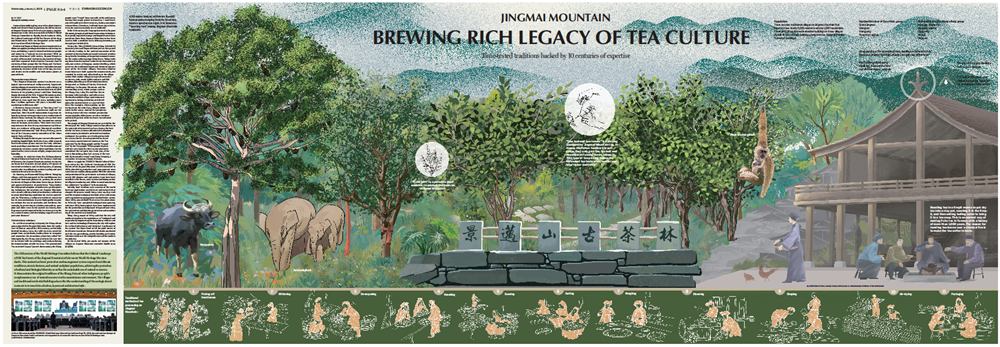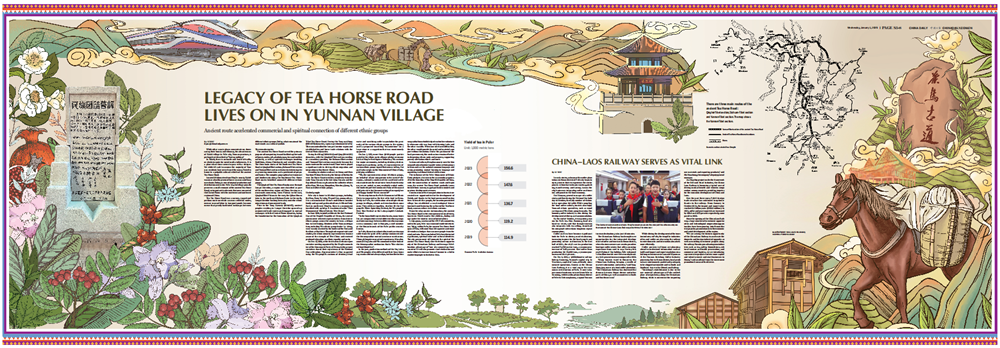Jingmai Mountain: Brewing rich legacy of tea culture


Among the mind-boggling array of tea plantations in Southwest China's Yunnan province, the old tea forests of Jingmai Mountain in Pu'er city can claim a singular distinction: At the 45th session of the UNESCO World Heritage Committee in Riyadh, Saudi Arabia in 2023, the Cultural Landscape of Old Tea Forests of the Jingmai Mountain in Pu'er was designated as the world’s first tea culture World Heritage Site.
Residents of Jingmai Mountain have time-tested traditions in applying ecological wisdom in cultivating tea trees, embodying a special interaction between people and nature in a "natural tea tree museum". With an average elevation of 1,400 meters, Jingmai Mountain consists of five ancient tea forests, nine ancient villages and three separated shelter forests. For more than 10 centuries, ethnic groups like the Blang and Dai have utilized the ecosystem to cultivate a three-dimensional community structure of tall trees at the top, tea trees and shrubs in the middle and herbaceous plants at ground level.

Located 20 kilometers from Ning'er county, Nakeli was once a bustling town of horse caravans and busy merchants. Today, as one of original production and distribution centers for Pu'er tea, the village proudly preserves a small remnant of the ancient Tea Horse Road, an important trade route that once connected the Central Plains with the southwest and northwest regions of China.
The Tea Horse Road was a narrow, rugged and perilous route on which caravans relied on mules, oxen or manual labor to transport goods for commerce that greatly facilitated exchanges between different ethnic groups. Today, what remains of the road stands as a cultural symbol.























